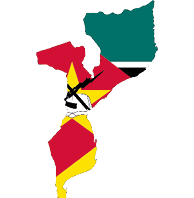4.6 Involvement of partners in a Team Europe approach in Team Europe Initiatives
- As outlined in Chapter 1.3, beyond the actors following a Team Europe approach, who are the official members responsible for managing the processes, other Team Europe approach- external stakeholders (referred to as partners in a Team Europe approach; and ranging from partner country national authorities to other like-minded development partners, civil society organisations and the private sector) should be involved and consulted throughout the TEI process – from design to implementation and monitoring – because partnerships and collaboration are at the heart of the Team Europe approach.
- It is important to ensure a structured and inclusive consultations that take into account a gender perspective and ensure equal representation of different segments of society. To the maximum extent possible, existing consultation and policy dialogue spaces should be used and strengthened, in order to avoid consultation fatigue or repetition of processes.
On 27 February 2023, Zimbabwe’s Minister of Women Affairs hosted eight Team Europe approach Ambassadors and Switzerland to kick-off a high-level joint political dialogue around Zimbabwe’s new Team Europe Initiative on Gender Equality and Women Empowerment. The Minister herself acknowledged that there was a palpable sense of “togetherness” behind the cause, conveyed by the group Team Europe approach actors. At the end of March 2023, and as a first follow-up to the kick-off event, the Minister also agreed to spearhead and jointly organize (together with the local authorities and with Team Europe Approach actors) an event in the city of Murehwa, to commemorate the International Women’s Day. The event also provided a platform for direct engagement and exchange between the stakeholders and the community. Through the set-up of a ‘Market place for Change’, it provided an opportunity for the community and Team Europe approach implementing partners to market their produce and crafts, as well as to offer their services to community members. A dedicated Team Europe Initiatives stand, hosted by members of the EU’s Youth Sounding Board, provided participants with information about the TEIs in Zimbabwe.
Government and local authorities: there are many countries (e.g. Bolivia, Colombia, the Dominican Republic and Zimbabwe) where government authorities have been consulted from the start, at the design stage of the TEIs (selection of priority areas and formulation of concept notes). All TEI documents are generally aligned with the national development plan. For those countries which have started rolling out TEIs at the implementation stage, a structured dialogue with the authorities was initiated around the TEIs (e.g. in Colombia and Zimbabwe). National and local authorities have also continued to be involved in the roll-out of the programmes contributing to the TEIs, and have been invited to host or participate in high-level TEI launch and visibility events.
Civil society: the feedback collected from current joint programming and TEIs83 confirms that efforts should be made not only to ensure that CSOs with expertise or ‘a stake in the core issues discussed’ are present during the consultations, but also to ensure inclusiveness, particularly by integrating women and youth as well as marginalised groups and those living in vulnerable situations (using an intersectional lens).
In Mozambique, the delegation plans to create an EU Youth Sounding Board that will provide a space where young people can be meaningfully consulted on the EU’s actions in Mozambique – not only in the field of cooperation, but also on policies, economics and trade. The Board will closely monitor actions that have been designed and implemented under the e-Youth TEI and which provide youth with the opportunity to connect with and influence EU’s decisions. It will help to make EU actions more participatory, relevant and effective for young people in Mozambique, across all segments of the society.
⇒ See also Chapter 1.4 and Annex 4.4 in this guidance.
Private sector: the private sector can contribute to a TEI as a partner. In this capacity, it brings cutting- edge expertise and knowledge; invests in a complementary manner; benefits from the financing instruments described in Chapter 3 as well as from complementary development-oriented investments of other actors following a Team Europe approach; and contributes with a private-sector view to the joint policy dialogue of TEIs. There are a number of options for private sector involvement.
- Multistakeholder platforms and approaches.
- Involvement of the local and EU private sector in the preparation and implementation of TEIs. This might include consultations during the preparation and implementation phases of TEIs. Ad hoc and regular consultations as well as a structured dialogue can be chosen for this purpose.
- Regular meetings and events with business organisations, business forums, multistakeholder initiatives or other forms of public-private dialogue.
In a context where EU Member States are often active at the bilateral (rather than EU) level when it comes specifically to private sector engagement (in development), TEIs provide an opportunity to involve the EU’s private sector in a coordinated and integrated manner. For example, business forums in partner countries are systematically organised in coordination and complementarity with EU Member States.
⇒ See also Chapter 1.4 of this guidance.
83 INTPA/D1 internal progress report 2021, Summary Report of EU Delegations’ Replies on Working Better Together: Team Europe Initiatives and Joint Programming.


